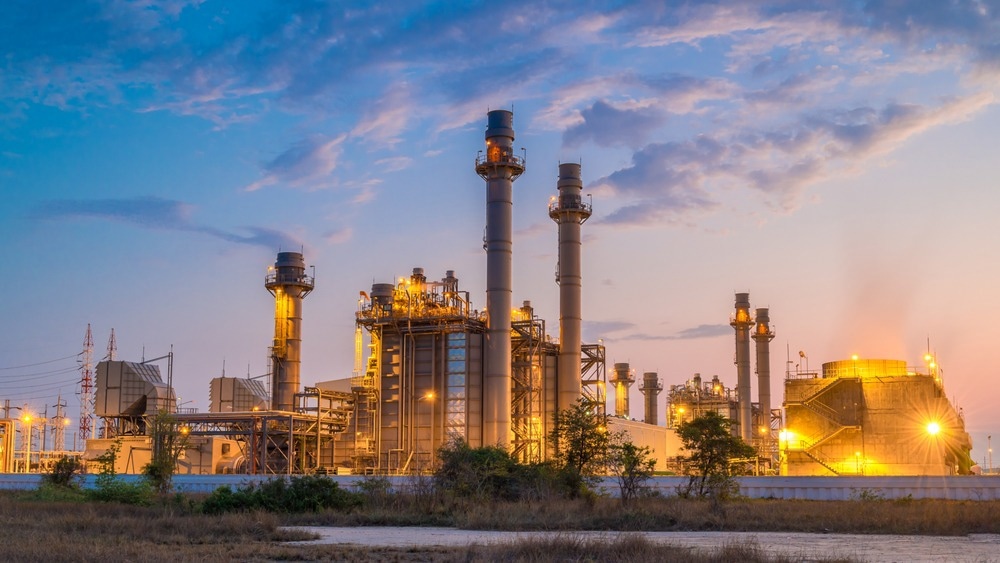The power generation industry depends heavily on large electric motors to maintain peak performance. From deep within mining sites to the core of oil and gas operations, these motors serve as the tireless workhorses behind electricity production. Given their vital role, the need for sustainable, reliable, and efficient motors is more pressing than ever.

Image Credit: Ha-nu-man/Shutterstock.com
Power plants operate in challenging environments. High temperatures, intense vibrations, and exposure to corrosive substances push motors to run continuously with minimal downtime. At the same time, the industry faces growing pressure to reduce its environmental footprint while remaining cost-effective.
Large motors are essential across a range of power generation technologies. Their performance has a direct impact on the efficiency and output of power plants.
The Shift Toward Sustainability
The global push for sustainability has placed the power generation industry under growing scrutiny. Reducing carbon emissions and minimizing environmental impact are critical priorities. Large motors play a key role in supporting these objectives.
Motors with high efficiency ratings use less electricity to deliver the same output, resulting in energy savings, lower operating costs, and reduced greenhouse gas emissions. In addition, the use of recycled materials, sustainable manufacturing practices, and responsible end-of-life management further reduces the overall environmental footprint.
When Downtime Isn’t an Option
Unplanned downtime in power generation plants can have a serious impact. These consequences can affect revenue, grid stability, and public safety, making reliable motors essential.
Motors designed for harsh conditions must be built to last. High-quality materials, advanced cooling systems, and robust insulation all contribute to improved reliability.
Predictive maintenance programs—using technologies such as vibration analysis and thermal imaging—can help identify potential faults before they lead to failures, reducing system downtime and enhancing maintenance schedules. Adding redundant components or systems is another way to boost overall reliability.
While the initial purchase price of a motor matters, the total cost of ownership (TCO) offers a more complete view of its economic impact. A more expensive motor with strong efficiency and reliability can lead to lower overall costs. High-efficiency motors directly reduce energy consumption, resulting in substantial savings.
Following a regular maintenance schedule can prevent costly breakdowns by addressing issues early. Having a reliable motor helps to reduce unplanned downtime, safeguard revenue, and reduce repair costs. Lower energy use often translates into reduced environmental taxes and compliance expenses.
Motor Tech
To meet rising demands in the power generation industry, manufacturers are advancing motor technology. Water-cooled motors, which operate at higher temperatures for greater power density and efficiency, are in demand. However, they necessitate additional maintenance and cautious leak avoidance.
Condition monitoring systems, which integrate sensors and data analytics, allow for real-time motor performance monitoring, enabling scheduled maintenance and improving operations.
The future of power generation is increasingly tied to digitalization and sustainability. Technologies like the Internet of Things (IoT) and artificial intelligence (AI) are reshaping the industry. Motors with built-in sensors can send data to a central control system, allowing for remote monitoring and predictive maintenance.
As renewable energy sources are integrated into the power grid at a faster pace, demand for more efficient and reliable motors continues to grow.
By adopting advanced technologies and prioritizing sustainability, the power generation sector can boost the performance of large motors, lower costs, and support a cleaner, more resilient energy infrastructure.
Motor Efficiency and Its Impact on Sustainability
Energy efficiency is a key component of sustainable power generation. Adopting energy-efficient motors across the power generation sector can significantly contribute to overall carbon reduction targets.
The efficiency of large motors directly affects the profitability of power generation facilities. Reducing energy consumption helps operators lower operating costs, enhance competitiveness, and boost financial performance.
Tackling Motor Reliability Challenges in Industrial Systems
Ensuring motor reliability in the challenging conditions of power generation calls for a multi-faceted approach.
Robust design, including high-quality materials and excellent cooling systems, is required. In addition, implementing comprehensive maintenance procedures, which include planned maintenance, is critical for avoiding unplanned downtime.
Another important factor is selecting the right motor type for specific applications. Understanding operating conditions and load profiles is crucial for proper motor selection. For instance, in environments with high vibration or exposure to corrosive substances, specialized motor designs and materials may be required.
Impact of Motor Technology Advancements
Advancements in motor technology continue to drive progress in the power generation industry. Condition monitoring systems offer valuable insights into motor health, enabling preventive maintenance and extending motor lifespan.
As technology continues to evolve, the power generation industry must stay informed about new developments and adopt appropriate solutions to enhance motor performance and efficiency.
The Road Ahead: Digitalization and Integration
The integration of digital technologies such as IoT and AI is transforming the power generation sector. Connecting motors to digital systems gives operators access to real-time performance data, helping to optimize maintenance schedules and improve overall efficiency.
The growing incorporation of renewable energy sources into the power grid introduces both challenges and opportunities for large motors. These motors must perform reliably under variable and fluctuating load conditions, which calls for advanced control systems and adaptable designs.
The future of power generation lies in the seamless combination of sustainability, reliability, and efficiency. By focusing on these priorities and adopting advanced technologies, the industry can boost the performance of large motors and support a cleaner, more resilient energy infrastructure.

This information has been sourced, reviewed and adapted from materials provided by ABB Motors and Drives North America.
For more information on this source, please visit ABB Motors and Drives North America.